#Azincourt
Text

Agincourt, by Sergey Shikin
#book cover#azincourt#bernard cornwell#knights#cavalier#chivalry#fighter#horse#rider#hundred years war
210 notes
·
View notes
Photo
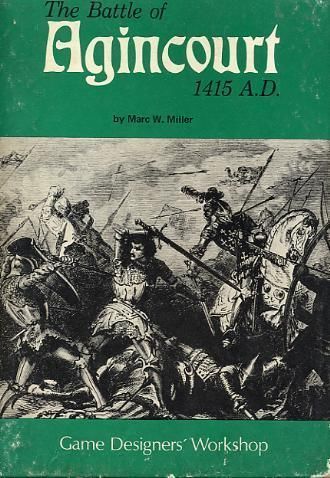
The Battle of Agincourt 1415 AD, Marc Miller’s board wargame based on the battle at Azincourt, October 25, 1415 (Game Designers’ Workshop, 1980 boxed version of game, originally released in a Ziploc bag in 1978, a “Series 120 Game” intended for 2 players to complete within 2 hours) This is of course the same Marc Miller and GDW that published Traveller in 1977 -- The supposed divisions between historical and sci-fi and fantasy players, or between wargamers and RPGers, make no sense to those of us who’ll play anything.
#The Battle of Agincourt#Marc W Miller#Agincourt#Azincourt#medieval#The Battle of Agincourt 1415 AD#Marc Miller#GDW#Game Designers' Workshop#board game#wargame
80 notes
·
View notes
Text

Agincourt by Sergey Shinkin
#battle of agincourt#the battle of agincourt#agincourt#azincourt#art#history#europe#european#france#england#knights#medieval#armour#middle ages#book cover#sergey shinkin#bernard cornwell#battle#cavalry#knight#cavalry charge#arrows#archers
69 notes
·
View notes
Text
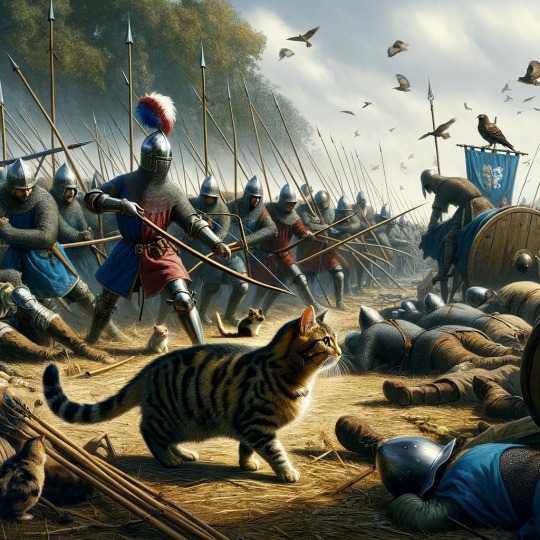
L’issue de la bataille d’Azincourt, en 1415, aurait tenu à la présence de chats dans le camp anglais : ils auraient protégé arcs et cordages des rongeurs, quand les Français voyaient leur matériel dévoré !

1 note
·
View note
Text
Azincourt par temps de pluie de Jean Teulé
Azincourt par temps de pluie de Jean Teulé
(more…)
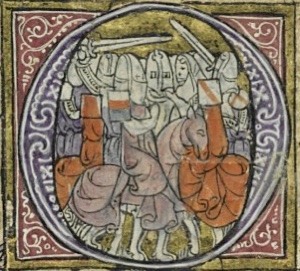
View On WordPress
1 note
·
View note
Text
youtube
Francis Cabrel, Rockstars du Moyen Âge (2020).
#ough my heart#this song is sooooo good#my medievalist heart is melting#i respect azincourt and les chevaliers cathares but this is it#why did i only learn this song exists today???#new favourite song unlocked#rockstars du moyen age#francis cabrel#middle ages#medieval history#r rambles#Youtube
4 notes
·
View notes
Text
Marie de Berry

The possibilities for political action were greatest when the mother succeeded in taking over as regent. Marie de Berry was married to Jean I, duke of Bourbon, in 1400. The duke was taken prisoner at the battle of Azincourt, and died in prison in 1434. Marie attempted to negotiate his release and the dauphin provided money for his ransom. However, the duke's acceptance of the treaty of Troyes and of Henry VI in 1429 precluded his return home. Their son was only aged twelve in 1415 and Marie assumed his guardianship and the rule of the duchy in order to try to safeguard its territory. Her husband gave her formal permission to exercise power only in his absence in 1417. Over the years that followed, Marie faced considerable problems arising out of the conflict of Armagnacs and Burgundians. Difficulties also arose over the duchy of Auvergne which her father, John, duke of Berry, in 1386 had declared would revert to the Crown if he died without a male heir, but which Charles VI had agreed at the time could pass to Marie and her husband. On her father's death in 1416 Marie occupied the two main strongholds of the duchy, but she was only allowed to do homage two years later, and it was not until 1425 that Auvergne was handed over by Charles VII at the time of her son's marriage to Agnes of Burgundy. Marie retired from power in 1427 when her husband gave his son the right to administer the duchy.
Jennifer C. Ward- Noblewomen, Family, and Identity in Late Medieval Europe- in Nobles and Nobility in Medieval Europe
#xiv#xv#jennifer c.ward#nobles and nobility in medieval europe#marie de berry#valois princesses#duchesses de bourbon#duchesses d'auvergne#hundred years war#jean i de bourbon#battle of azincourt#jean i de berry#armagnacs vs bourguignons#charles i de bourbon#agnès de bourgogne#charles vii
10 notes
·
View notes
Text
“ Lo scrittore e saggista austriaco Stefan Zweig, in un articolo del ’31, annotava che ogni essere umano «grazie al libro, non è piú murato solo con se stesso nel proprio ristretto campo visivo: può invece rendersi partecipe di tutti gli avvenimenti presenti e passati, dell’intero pensare e sentire dell’intera umanità». Attraverso i libri – continuava Zweig – «un mondo piú tumultuoso e selvaggio irrompeva all’interno delle mura dell’abitazione borghese»; grazie ai libri «ho intuito per la prima volta l’incommensurabile vastità del mondo e il piacere di smarrirmi in essa»; leggendo non si vede la realtà soltanto con i propri occhi, «ma con lo sguardo di innumerevoli anime». Chi legge segue il desiderio di vivere una vita “allontanante”, di lasciarsi magari alle spalle un mondo tetro e spiacevole, ed evadere in uno piú vasto, piú vario e piú ricco o piú intimo. L’“allontanamento” può salvare dal sentirsi schiacciati dal presente e dalle incombenze spesso uggiose del vivere. Chi legge può andare là dove altri non ci sono, in un territorio tutto suo, una “via del rifugio”. L’esperienza di un lettore non è limitata alla propria esistenza di uomo sulla terra. Nella vita, notava Antonio Tabucchi, «si può avere un grande amore, è già una fortuna, due grandi amori è un privilegio che tocca a pochi, ma l’esperienza umana è estremamente limitata»; tramite la letteratura invece, fonte di conoscenza, «tu entri, attraverso varie porte, in questo sentimento complesso che non potresti mai esperire in forma diretta, perché è chiaro che non possiamo essere simultaneamente, nella nostra breve vita, Anna Karenina e, poniamo, Tristano e Isotta o Emma Bovary o Giulietta e Romeo». Grazie ai libri riusciamo invece a vivere piú vite, non esclusivamente l’immediato nostro presente. Il libro è il pensiero vivente di una persona, separata da noi dallo spazio del tempo, e ci parla. Alla memoria personale aggiungiamo una memoria collettiva, e l’intrico delle due «allunga la nostra vita, sia pure all’indietro», scrive Umberto Eco nelle Sei passeggiate nei boschi narrativi, «[…] in qualche modo nel corso della nostra vita noi possiamo rabbrividire con Napoleone per un levarsi improvviso del vento dell’Atlantico su Sant’Elena, gioire con Enrico IV per la vittoria di Azincourt, soffrire con Cesare per il tradimento di Bruto». In un saggio del 1919, La lettura, ancora Virginia Woolf rilevava con rapita scrittura la magica possibilità umana del leggere come circostanza capace di far volgere la mente al passato, quando, grazie a una eventuale complice calma e calda mattina d’estate, un libro soltanto – dietro alle voci del presente, le figure, una fontana, le cose… – permette di aprire una strada infinita che si allunga sino a incontrare come in un fuga musicale una variazione innumerevole di altre voci, altre figure, altre fontane… Apre da quel momento la valorizzazione di uno spazio privato, il tempo lento del leggere in spazi sottratti alla giornata. “
Gian Luigi Beccaria, In contrattempo. Un elogio della lentezza, Einaudi (collana Vele), 2022. [Libro elettronico]
#letture#leggere#citazioni#saggistica#scritti saggistici#libri#Antonio Tabucchi#Stefan Zweig#piacere#umanità#intimità#esperienza umana#vastità#evasioni#evadere#piaceri#vita#Anna Karenina#letteratura#conoscenza#sentimenti#saggi#Giulietta e Romeo#complessità#Emma Bovary#Umberto Eco#Madame Bovary#ricordi#Virginia Woolf#memoria collettiva
37 notes
·
View notes
Photo
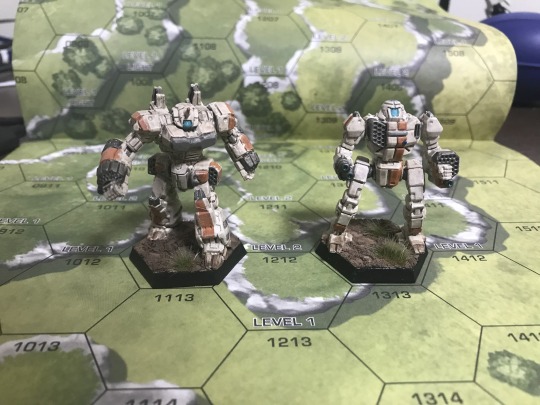





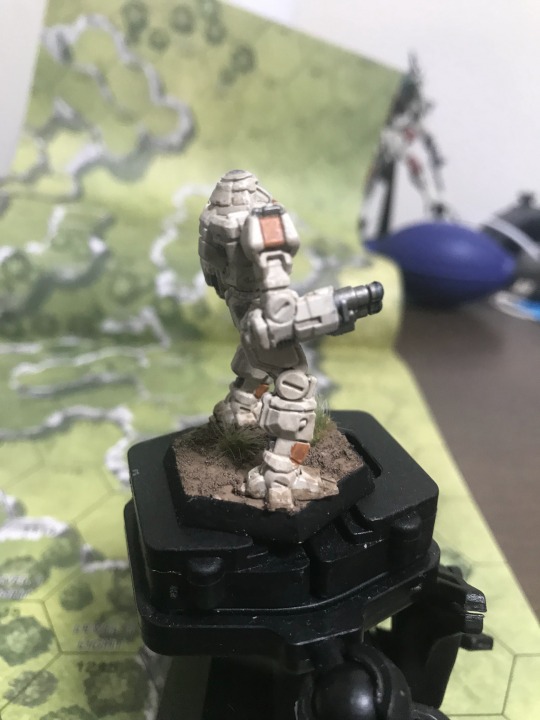


Heavy Metal Hero
Back off hiatus with something a little different! A Crusader and a Trebuchet for my BattleTech mercenary outfit. Technically that means I've got a Star painted - not that these folks would know in February 3050!
Though Commander Tachikawa 'Ramlethal' Ryūsei has been directing the outfit to slowly collect Marauders (as per his own tastes), as of February 3050 their oldest confirmed machine is in fact this CRD-3R, a veteran of the Second Succession War. In marked contrast, TBT-5N 'Azincourt' essentially still has wet paint - a former Rasalhague reserve machine given as payment for the FRR-aligned outfit's last contract. The ‘Trenchbucket’ has been paired with the outfit's Longbow LGB-0W, 'Crécy', for field evaluation.
30 notes
·
View notes
Text
the thing is i simply know that sooner or later there'll be a på spåret hint involving azincourt
2 notes
·
View notes
Text
Things to remember about the Hundred Years War
Ever since 1066, the king of England held lands in France as a vassel of the king of France. Sometimes more than half of the country belonged to him. This situation was untenable. In 1224, all but Gascony was reconquered by the French, but this piece of land (which, amongst others, has Bordeau) produced more revenue than the whole of England.
In 1328, the last of the main branch of the Capet family, Charles IV, died without heir. The French lords decided that Philippe of Valois (Philip VI) were to become the next king, whereas the king of England, Edward III, was the nephew of the lst French king. Edward, being a minor, initially agrees to this, but later takes up arms. He would become one of the best kings England has ever had, with a golden reign of half a century.
In 1337, Philip VI declared that Aquitaine no longer belonged to Edward III. Most historians consider this the beginning of the Hundred Years War.
In 1340, Edward III declared himself king of France
The English used the technique of 'chevauchée', destroying the land and thereby the morale and revenue of the people of France.
There was proxy-war going on in Brittany, France.
In 1346, the Battle of Crezy was the first in a series of battles in which French mounted knights lost to smaller armies of English longbow-soldiers.
The French king, John II, was taking prisoner during one of these battles, the battle of Poitiers in 1356. His son, the later Charles V, effectively ruled in his name. John would be able to return thanks to a treaty, but as Louis of Anjou escaped and therefore broke the rules, he willingly returned to England, eventually dying there. He also wrote poetry.
Bertrand de Guesclin, one of the most badass generals ever.
So many troubles, a mad French king who thought he was made of glass, but end 14th century, the French had a capable king whereas in England the situation was bad with the end of Plantagenet rule and the beginning of the house of Lancaster on the throne. As the golden generation passed.
Horrible Azincourt in 1415.
The mad Charles VI signed the Treaty of Troyes in 1420, making Henry V the regent and heir to his throne, surpassing his own son ( the later Charles VII)
After the battle of Verneuil, known as the Second Azincourt, the situation was so bad that the later Charles VII considered fleeing the country. Joan of Arc completely turned French morale around, helping them to break the siege of Orleans and then getting Charles VII coronated. Of course, the same Charles did nothing to save her from her horrible fate.
The tide had been turned in favour of the French. An important turning point was the 1429 Battle of Patay, also known as the 'English Azincourt', which proved that the English could be defeated in open battle.
#dark academia#european history#history#middle ages#france#england#french history#english history#joan of arc#hundred years war
4 notes
·
View notes
Photo

Batalla de Azincourt
En la batalla de Azincourt el 25 de octubre de 1415, Enrique V de Inglaterra (r. del 1413 al 1422) derrotó a un ejército francés abrumadoramente mayor durante la guerra de los Cien Años (1337-1453). Los ingleses ganaron gracias a la superioridad del arco largo, la posición en el campo y la disciplina. Los franceses sufrieron la dependencia de la caballería pesada en terrenos difíciles y la mala disciplina de sus comandantes.
Sigue leyendo...
0 notes
Note
I saw you liked Bernard Cornwell in your ask game 👀
Big Sharpe fan ????
Heey yes I'm a big big fan of his works, I think his storytelling is pretty amazing and the way he gives us historical and geographical accurate descriptions captivates me. I have most of his books, but never really got to the end of Sharpe, don't get me wrong its amazing but there are TOO MANY BOOKS????? I stopped after four hahaha but I really really love the Warlord Trilogy and the Grail Quest, also Azincourt and Waterloo are pretty awesome books too
0 notes
Text
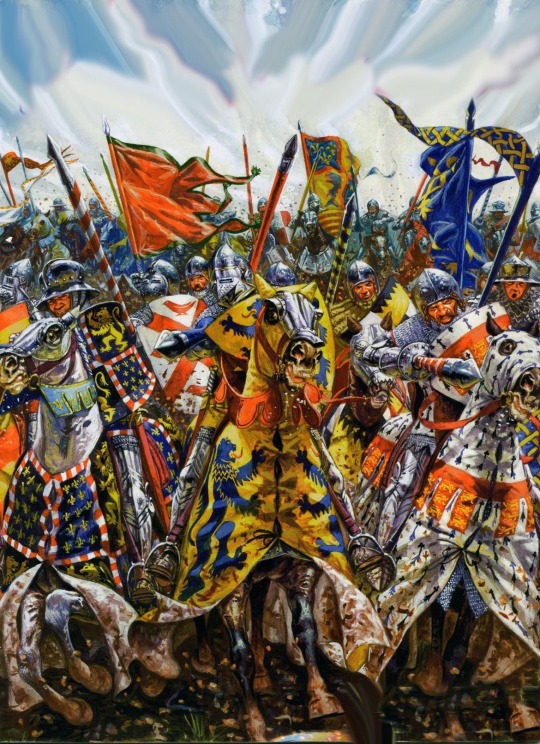
"Montjoie Saint Denis!"
#azincourt#agincourt#battle of agincourt#knights#cavalry charge#cavalry#armour#france#french#art#history#europe#european#medieval#middle ages#heraldry#banners#coat of arms#nobles#royal#royalty#king#oriflamme#giuseppe rava#montjoie saint denis
38 notes
·
View notes
Text
the french really displayed their full strategic prowess at azincourt
0 notes
Text
"Montreuil-sur-Mer" se transforme en "Montreuil-sous-Mer".
Le Pas-de-Calais sous l'eau.
Bateau perdu. Le GPS ne sert à rien!
0 notes